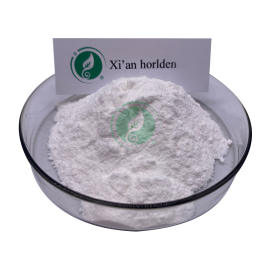-
Categories
-
Pharmaceutical Intermediates
-
Active Pharmaceutical Ingredients
-
Food Additives
- Industrial Coatings
- Agrochemicals
- Dyes and Pigments
- Surfactant
- Flavors and Fragrances
- Chemical Reagents
- Catalyst and Auxiliary
- Natural Products
- Inorganic Chemistry
-
Organic Chemistry
-
Biochemical Engineering
- Analytical Chemistry
- Cosmetic Ingredient
-
Pharmaceutical Intermediates
Promotion
ECHEMI Mall
Wholesale
Weekly Price
Exhibition
News
-
Trade Service
Original title: Low-salt diet also need to be wary of "hidden salt
salt is one of life's essential condiments, but should also eat degrees. Xia Yanqiong, director of nutrition department, chief physician and registered dietitian of Guangdong Maternal and Child Health Hospital, pointed out that adults should not consume more than 6 grams of salt per day. Too much salt increases the risk of high blood pressure, stomach cancer, and moderate stroke. Therefore, salt should be quantified, especially to be wary of "hidden salt" intake, she also asked how to do salt reduction.
Beware of "hidden salts
Xia Yanqiong said, 1 gram of salt contains about 400 mg of sodium, according to the appropriate intake of sodium, "China Residents Dietary Guidelines (2016)" recommended adults daily salt intake of no more than 6 grams.
" at present, China's residents' salt intake is generally too much. Xia Yanqiong pointed out that the salt consumed in life mainly comes from cooking salt three meals a day and the highly confusing "hidden salt". Some people feel that eating salt is within 6 grams, but unknowingly ingests a lot of "hidden salt".
soy sauce, MSG, chicken essence, soy sauce, pickles, cabbage, shrimp skin, dried fruit, bread, biscuits, etc. all contain "hidden salt." Xia Yanqiong stressed that we should be especially alert to "hidden salt" and eat less high-salt food. A survey showed that 15 grams of a pack of "pocket" vegetables contained 1.5 grams of salt.
the nutritional labels of prepackaged foods, sodium is one of the five nutrients that are mandatoryly labeled. Pay attention to the amount of sodium in your food when you buy. In general, if the sodium content per 100 grams of food in the ingredients list exceeds 30% NRV (nutrient reference value), special attention should be paid, it is best to buy less and eat less.
you choose salt on a daily basis?
iodine is critical to human health, in addition to high water iodine areas, generally recommended to eat iodized salt, especially children and adolescents, pregnant women breast-feeding families, but also should eat iodized salt, to prevent iodine deficiency. Adults can consume 6 grams of iodized salt per day to meet the needs of 120 micrograms of iodine per day.
But pregnant women's demand for iodine increased from 120 micrograms to 230 micrograms per day, and in addition to iodized salt, iodine-rich seaweed foods are recommended at least once a week.
iodine in high temperature, humidity or encounter vinegar and other acidic substances are easy to volatile, so, when storing salt should pay attention to the container covered, moisture, light, heat protection. Some families are used to putting salt close to the stove, and iodine is actually volatile easily. Fried vegetables almost out of the pot and then put salt, so fried out of the dish more fresh, and iodine is not volatile.
, low sodium salts are recommended for people with high blood pressure.
Salin reduction trick look here
Xia Yanqiong said that changing bad lifestyle is an important factor to promote health, and now advocates "three minus three health", "three minus" that is, salt reduction, oil reduction, sugar reduction. How to reduce salt intake? Her tricks are as follows -
1. Eat less or not eat high-salt snacks
snacks are mostly high-salt foods, be wary of "hidden salt" and learn to look at food labels.
2. Stir-fry vegetables may wish to put more vinegar
not all dishes need salt, vinegar, lemon juice, ginger and other condiments can also improve freshness, reduce salt intake.
3. Using quantitative salt spoon
recommended to use salt-controlled spoon, quantitative consumption. In addition, it is recommended that home-made food scales not only control salt control oil, but also help to quantify other foods.
4. Away from the "heavy taste", from the baby to grab
people's taste is gradually developed, from an early age should pay attention to the cultivation of children's light taste. It is not recommended to add any condiments before the age of 1 year, the salt content of 1 to 2 years old is controlled at 0 to 1.5 g/day, 2 to 3 years old salt is less than 2 g/day, 4 to 5 years old salt is less than 3 g/day. Children are not allowed to try adult food, children under 3 years of age are best cooked alone, at least until the age of two.







